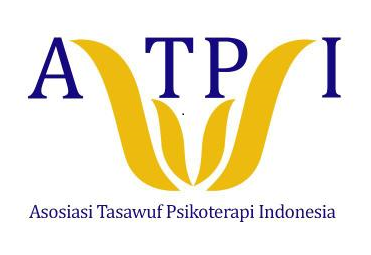Ratib Al-Attas Dhikr Therapy as a Ta'zir for Female Santri Indiscipline
DOI:
https://doi.org/10.28918/jousip.v4i1.8611Keywords:
dhikr therapy, ratib Al-Attas, ta'zir, female santri indisciplineAbstract
Student discipline is not influenced by personality factors, students who have good personalities are not completely good, because these students still commit violations, especially in the aspect of indiscipline. The aim of this research is to determine the implementation of Ratib al-Attas dhikr therapy at the Islamic Boarding School of Salafiyah Syafi'i Akrom, Pekalongan City and to determine the discipline of the students before and after carrying out the Ratib al-Attas dhikr therapy as a ta'zir for female santri indiscipline at the Islamic Boarding School of Salafiyah Syafi'i Akrom, Pekalongan City. This research uses a qualitative approach with a field research type of research. Data collection was carried out by observation, interviews and documentation. By using data analysis techniques using the Miles and Huberman model, namely: data collection stage, data reduction stage, data presentation stage, and conclusion stage. The results of this research indicate that Ratib al-Attas dhikr therapy as a ta'zir for female santri indiscipline at the Islamic Boarding School of Salafiyah Syafi'i Akrom, Pekalongan City includes three stages, namely the initial stage (conditioning), the middle stage (implementation) and the final stage (evaluation). The indiscipline of students before and after carrying out Ratib al-Attas dhikr therapy at the Islamic Boarding School of Salafiyah Syafi'i Akrom, Pekalongan City, experienced different changes. The first and second santri insisted not to repeat their indiscipline again in the future. In the third and fourth students, they felt normal after doing Ratib al-Attas dhikr therapy. The fifth subject felt increasingly challenged to be indisciplined again.
References
Arifin, S., & Zaini, A. (2017). Takzir dalam Pendidikan Pesantren Kajian Teknik Pengubahan Tingkah Laku Perspektif Konseling. In Proceedings of Annual Conference for Muslim Scholars (No. Seri 2, pp. 812-823).
Ar-Ridho, A. Z., & Hayati, S. M. (2022). Konsep Zikir Sufistik dalam Tafsir Al-Qur’ān Al-Karīm Karya Mullā Ṣadrā. JOUSIP: Journal of Sufism and Psychotherapy, 2(2), 167-182.
Farmawati, C. (2021). Psikoterapi Profetik: Tujuh Sunnah Harian dari Rasulullah. Penerbit NEM.
Djamarah, S. B. (2008). Rahasia Sukses Belajar. Jakarta: PT. Rineka Cipta.
HF. (2023). Santri Putri Pondok Pesantren Salafiyah Syafi’i Akrom Kota Pekalongan. Wawancara Pribadi, 3-5 Februari 2023.
HNAN. (2023). Santri Putri Pondok Pesantren Salafiyah Syafi’i Akrom Kota Pekalongan. Wawancara Pribadi, 3-5 Februari 2023.
Kyai Husein, N. A. (2023). Pengasuh Pondok Pesantren Salafiyah Syafi’i Akrom Kota Pekalongan. Wawancara Pribadi, 23 Februari 2023.
Mohsin, M. A., Baharudin, M. H. A. M., Abdullah, N., Sawari, S. S. M., Napiah, O., Noor, S. S. M., & Jasmi, K. A. (2016). Ratib al-Attas Menurut Perspektif al-Quran dan Hadis. Sains Humanika, 8(3-2).
Maromi, Z. (2017). Penerapan Takzir Sebagai Upaya Membentuk Kedisiplinan Santri Pondok Tremas Pacitan Jawa Timur. Skripsi. Pekalongan: Fakultas Tarbiyah dan Ilmu Keguruan Institut Agama Islam Negeri (IAIN) Pekalongan.
Munisah. (2022). Keamanan Pondok Pesantren Salafiyah Syafi’i Akrom Kota Pekalongan. Wawancara Pribadi, 9 Desember 2022.
NAC. (2023). Santri Putri Pondok Pesantren Salafiyah Syafi’i Akrom Kota Pekalongan. Wawancara Pribadi, 3-5 Februari 2023.
Pramono, E. S. (2020). Hubungan intensitas sholat berjama’ah dan kecerdasan emosional sosial pada mahasiswa iain salatiga di pondok pesantren al-ghufron kecandran sidomukti salatiga tahun 2020. Skripsi. Salatiga: Fakultas Tarbiyah dan Ilmu Keguruan Institut Agama Islam Negeri (IAIN) Salatiga.
Pongtiku, A. (2016). Metode Penelitian Kualitatif Saja. Jayapura: Nulis Buku.
Rizkon, A. (2019). Pengaruh Metode Islah Mubasyir terhadap Kedisiplinan Santri Pondok Pesantren Al-Basyariyah Kabupaten Bandung. Jurnal Pendidikan Islam Indonesia, 4(1), 23-29.
Sahimi, M. S., & Zakaria, N. (2021). Rātib al-Ἁṭṭas: Biography of the Compiler and Analysis of his Zikir. Jurnal Al-Sirat, 2(19), 65-74.
Saputro, A. (2020). Penerapan Sistem Ta’zir dalam Meningkatkan Kedisiplinan Santri di Pondok Pesantren Al Hikmah Bandar Lampung. Doctoral Dissertation. Lampung: UIN Raden Intan Lampung.
Sarja, S. (2021). Upaya Santri Miftahul Qiro’ ah Melawan Covid-19 dengan Berkhalwat. JOUSIP: Journal of Sufism and Psychotherapy, 1(2), 161-176.
Sawaty, I., & Tandirerung, K. (2018). Strategi pembinaan akhlak santri di pondok pesantren. Al-Mau'izhah: Jurnal Bimbingan dan Penyuluhan Islam, 1(1).
Setiadi, E. M., & Kolip, U. (2011). Pengantar Sosiologi. Jakarta. Kencana Prenada Media Group.
SKN. (2023). Santri Putri Pondok Pesantren Salafiyah Syafi’i Akrom Kota Pekalongan. Wawancara Pribadi, 3 Februari 2023.
SRP. (2023). Santri Putri Pondok Pesantren Salafiyah Syafi’i Akrom Kota Pekalongan. Wawancara Pribadi, 3-5 Februari 2023.
Ulfah, N. A. A. (2017). Bimbingan dan Konseling Islam dengan Terapi Sholat Jama’ah Arba’in untuk Meningkatkan Kedisiplinan Seorang Santriwati di Pondok Pesantren Raudlatul Muta’alimin Kabupaten Lamongan. Skripsi. Surabaya: Fakultas Dakwah Institut Agama Islam Negeri (IAIN) Sunan Ampel Surabaya.
Downloads
Published
Issue
Section
License
Copyright (c) 2024 Fitria Nur Afifah, Samir Mahmoud

This work is licensed under a Creative Commons Attribution-ShareAlike 4.0 International License.

















